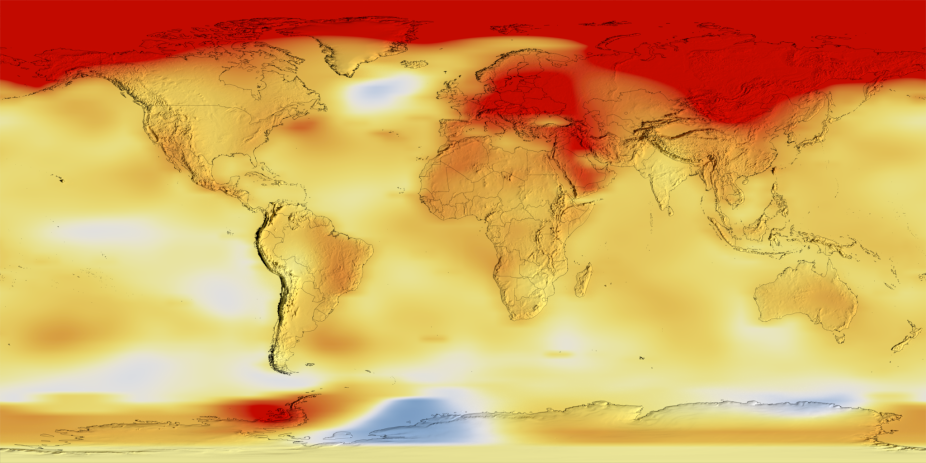Turning down the thermostat: Climate intervention using stratospheric aerosols

NASA Goddard Institute for Space Studies
5:00 – 6:30 pm MDT
Earth’s global mean temperature has been steadily increasing over the last 60 years. These changes have been associated with increases in extreme weather events, such as heat-waves, floods and droughts. Mitigation of emissions is the best way to limit the effects of human-induced climate change, but may not occur fast enough to avoid much more serious impacts than those felt already. Climate intervention strategies are being explored as possible additional options to reduce the worst consequences of this change. In this Explorer Series talk, scientists Dr. Jadwiga Richter and Dr. Douglas MacMartin present the latest research findings of modeling studies of risks and benefits of climate intervention utilizing stratospheric aerosols, a method analogous to the cooling produced by large volcanic eruptions. Join us to learn what it would take to cool down the Earth to present day or earlier climate and what are the uncertainties associated with such an approach.
Jadwiga (Yaga) Richter
Dr. Jadwiga (Yaga) H. Richter is a scientist in the Climate Change Research (CCR) section of the Climate and Global Dynamics (CGD) Laboratory at NSF NCAR. Her areas of expertise and scientific interests include gravity waves and their parameterizations in global climate models, middle atmospheric dynamics, quasi-biennial oscillation (QBO), whole atmosphere climate modeling, subseasonal-to-seasonal forecasting, and geoengineering. Dr. Richter has developed the first source spectrum parameterization of convectively generated gravity waves in a climate model. Her improvements to the convective momentum transport parameterization in the Community Atmosphere Model (CAM) have significantly improved the representation of El Nino Southern Oscillation, and with her work on gravity waves and vertical resolution, she was able to obtain a very realistic QBO in the NSF NCAR CAM and Whole Atmosphere Community Climate Model (WACCM). She is currently the co-PI of the NCAR DOE Cooperative Agreement to Analyze Variability, Change and Predictability in the Earth System (CATALYST).
Dr. Richter received a B. S. of Science in Mathematics from the State University of New York at Purchase, a Ph.D. in Atmospheric Sciences from University of Washington, and also holds a graduate certificate in Instructional Design from University of Wisconsin. She has spent the majority of her scientific career at NSF NCAR beginning with the ASP postdoctoral fellowship, with the exception of an Education and Outreach fellowship at University of Colorado.
Douglas MacMartin
Dr. Douglas MacMartin is a Senior Research Fellow in the Sibley School of Mechanical and Aerospace Engineering at Cornell University. His research focuses on climate engineering (also known as solar geoengineering or climate intervention) with the aim of helping to develop the knowledge base necessary to support informed future societal decisions in this challenging and controversial field.
Dr. MacMartin has published extensively on this subject, and in addition to public and academic presentations has provided briefings to the UN Environment Program and testimony to the US Congress, and was a member of the US National Academies panel that made recommendations on both research and governance in March 2021. He received his Ph.D. in Aeronautics and Astronautics from MIT; previous positions include United Technologies Research Center (1994-2000) and the California Institute of Technology (2000-2015). His research is funded by NSF and by the Cornell Atkinson Center for a Sustainable Future.